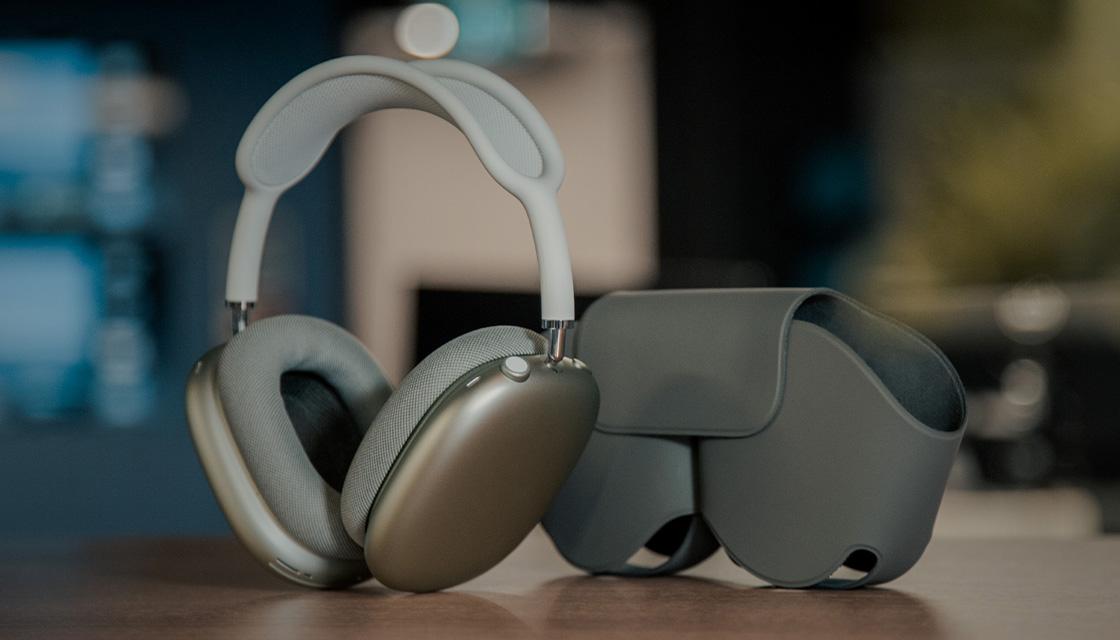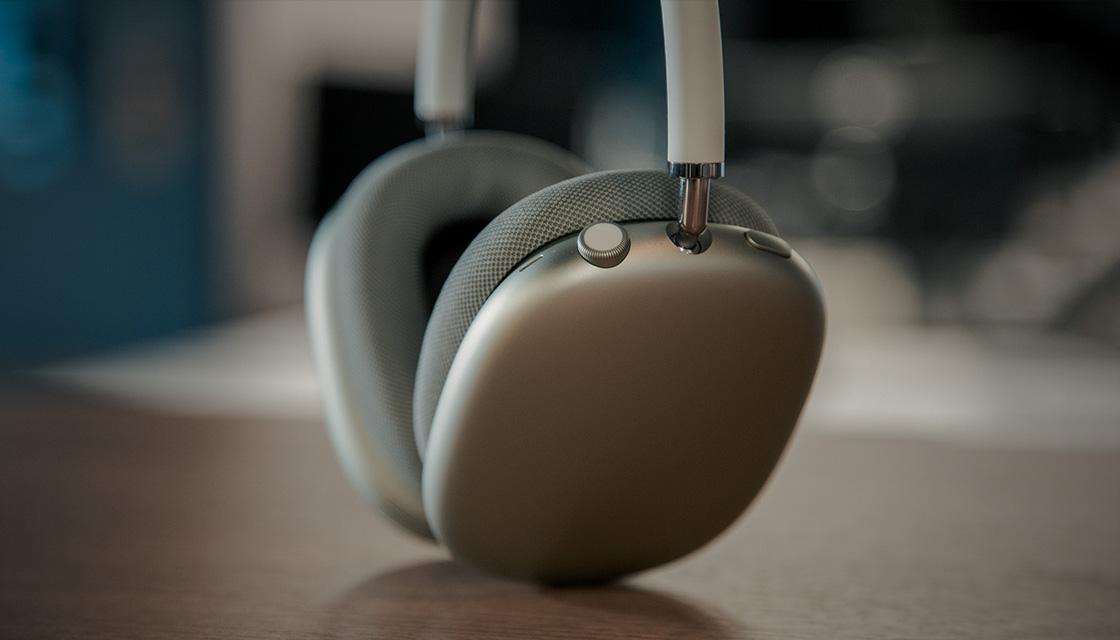
Apple's first ever set of over-ear headphones, The AirPods Max, have been released after years of rumours and a much-talked about announcement late last year.
One of the main talking points is the price - in New Zealand, a set of these will set you back around a whopping $1000.
How much of that small fortune simply means you get an Apple logo, as opposed to genuine quality?
I've been using a set of AirPods Max headphones for the past few weeks and here are my thoughts.
The good
OK, these things sound amazing.
The AirPods Max have really good active noise-cancelling (ANC) and really, really good audio quality - which is the single most important factor when judging headphones.
These are the sort where you pop them on, hit play on one of your favourite songs and kind of float away, finding pleasure in noticing various elements you maybe never have before - even if you've listened to that song hundreds of times.
As is increasingly the Apple way, the hardware in these has pretty much all been developed by Apple itself - which makes comparing the nuts and bolts of it all to other headphones a little tricky as the details are shrouded in mystery.
For what it's worth, the amazing sound quality is possible thanks to Apple's own 40mm dynamic drivers with a dual neodymium ring magnet motor. There's an H1 chip on each side, each said to be capable of nine billion operations per second - power which is used to optimise sound quality using computational audio.
Those facts are hard to measure against the tech specs of competitors - so how much better than a new pair of Sony or Bose do the AirPods Max actually sound? It's hard to discern a better quality than my beloved pair of Sony WH-1000XM4, but I'm not an audio engineer.

The two both sound extremely good and I'll need to keep using both for a while longer before I can decide which ultimately sounds better to me. But I do think the ANC is slightly better on Apple's product.
It's much more obvious why the AirPods Max cost so much more when looking at them up close rather than listening to them, however. Instead of the high-quality plastic build that companies like Sony and Bose go for, Apple's headphones go for a stainless steel headband connecting anodised aluminium ear cups.
You can adjust for your head size with steel telescopic arms in the headband that are very stiff, so it can't be bumped out of place like other headphones can.
Then the cups themselves are wonderfully large memory foam cushions that will comfortably surround your ears even if you have massive ones like mine.

The design is just very plush, exuding high quality much more obviously when these are in your hands rather than in an image on the internet. The colour of the model I'm reviewing and that features in these photographs is green, one of six colours available.
The mic is also high quality and seems to do a good job of recognising voice over other sounds. This is important for using the headphones to have a phone conversation or video conference, both of which it does a superb job at.
The battery offers around 20 hours of use, which is plenty enough where I'm finding myself charging these only a couple of times a week.
Using AirPods Max headphones is a breeze and sometimes brings with it satisfying novelty. Using the Apple Watch's digital crown to control volume feels kind of old-school and analogue, and does bring with it a great level of precision.
I had no trouble connecting the headphones to a Samsung Galaxy phone and a Windows PC, but the experience on those was just a normal headphones experience.
With other Apple products, it's more.

Swiping over on an iPhone will immediately show you how much battery remains on the headphones, along with your Apple Watch or other connected devices.
You also get a visual representation of the headphones when they connect, along with Apple's familiar audio cues - just a nice little touch.
Then there's head-tracking technology, which I still think is a bit of a gimmick that's not so useful in practice, but is a fun novelty. I just hope it becomes used in a more meaningful way soon.
The headphones also intelligently switch automatically between Apple devices in a way that does make them more useful than other headphones. If you have them connected to your phone and laptop, it knows which to cut off and reconnect or turn down and up.
It's part of that 'digital ecosystem' system of devices that all work together and quite impressive. It's easy to cynically think about Apple's motives for this, but as a user there's no denying the convenience and pleasure in how it works.
The bad
There's no getting around that eye-watering price.
For what a pair of AirPods Max cost, you could instead buy a PlayStation 5 console, a brand new copy of the latest Call of Duty game for it and still have enough change for around 16 cheeseburgers.
Aside from the price, there's not much to not like about these headphones - aside from the smart case.

These were mocked when they were first revealed and I'm far from the first critic to point out issues with them. The backlash is pretty large - so these issues will likely be sorted by the time AirPods Max's second edition is released.
But yeah, it's not a great case. It's scary trusting it to protect the headphones when they're in my bag as they don't offer much protection.
There are some cheap and much more useful looking third-party cases around already, but that's an extra cost - which brings me to the next point.
The AirPods Max don't come with a charger or headphone cord, despite how expensive they are.
They're designed to be primarily used wirelessly and with Apple products, which mostly ditched headphone ports years ago. You do get a Lightning - USB-A cord to recharge the headphones, but no adaptor for it.
If you want a headphone cord and you want it an official, Apple-branded one - that's an extra $65 from the Apple NZ store, while a 12W power adaptor will set you back $35. Yup, on top of the $1000 for the headphones.
And you probably want to fork out more for a decent case, on top of all that.
But people are going to do all of that - and a lot of them will be happy to do so.

The verdict
This is a stunning set of headphones that sound amazing, have extremely good noise-cancelling and are supremely easy to use along with other Apple products.
You can spend half of what the AirPods Max cost and still get a really, really good pair of wireless noise-cancelling headphones - but they won't have a few of the luxurious little touches these have, nor will they so perfectly match with an iPhone, iPad or Mac.
It's a shame a decent case, charger and cord cost extra on top of the already highly expensive cost of these headphones - purchasers can expect their non-Apple loving friends to ridicule them over that, and rightfully so.
But if you're the sort of person seriously considering buying these, when you pop them on, chuck on your favourite track and the real world melts away... well, the sense of satisfaction you'll get is pretty special.
Newshub was supplied a pair of AirPods Max headphones for this review.



